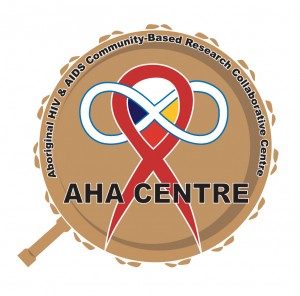CALL FOR PAPERS for Volume XI
Special Issue: Navigating Allyship: What does it mean to work together in service to the community?
The AHA Centre is a national, Indigenous-led collaborative research centre housed at the Canadian Aboriginal AIDS Network (CAAN) that supports HIV and AIDS Community-Based Research (CBR) conducted in Indigenous communities across Canada. We support and lead culturally-responsive HIV and determinants of health research and knowledge translation through meaningful engagement with First Nations, Inuit and Métis Peoples living with HIV. The CIHR Centre for REACH in HIV/AIDS (housed at the MAP Centre for Urban Health Solutions, St. Michael’s Hospital in Toronto), The AHA Centre’s ‘Sister Centre’, is a nationwide partnership that includes people living with HIV/AIDS, community-based organizations, front-line service providers, health researchers, and federal, provincial, and regional policy makers. REACH facilitates and promotes CBR while also exploring how to improve testing, linkage to care and stigma reduction interventions across Canada. We are excited to join forces for Volume XI of the Journal of Indigenous HIV Research (JIHR)—a peer-reviewed journal which welcomes contributions from any author. “Allyship” has been chosen as the theme of Volume XI to celebrate the collaborative relationships that are at the very heart of the CBR work we do.
If we look to the literature, we will see the term ‘ally’ largely applied to non-Indigenous people who work alongside of and in service to Indigenous Peoples and their communities. Allied researchers “[d]o not act out of guilt, but rather out of a genuine interest in challenging the larger oppressive power structures,” (Ally Bill of Responsibilities). Further, it is important to remember that “… being an ally is not a self-appointed identity and requires you to show your understanding through actions, relations, and recognition by the community” (Indigenous Ally Toolkit). In Volume XI of the JIHR, we seek articles that expand the notion of allyship beyond the Indigenous/non-Indigenous context to celebrate allyship in all of its forms. Submissions could also tell the story of one community working with another to build relationship and bridge capacity. In the field of HIV, for example, researchers who do not have lived experiences of HIV hold up the statement “Nothing about us Without Us” by taking leadership and direction from those with lived experiences of HIV. Really, the possibilities are endless!
We call upon all members of our respective communities to bring to light experiences, lessons learned, and knowledge gained from working with, or as, an ally.
Articles that are written from a strengths-based perspective are strongly encouraged. Although not a requirement for publication, authors are also encouraged to highlight how the principles of GIPA (Greater Involvement of People Living with HIV) and MEPA (Meaningful Engagement of People Living with HIV) have been applied throughout research processes, including manuscript submissions.
Articles must fall under one or more of the following headings and demonstrate how allyship works across cultures and disciplines:
- Community-based research development and findings: Quantitative, qualitative, or mixed methods research that throughout the entire process engages community. We welcome papers that speak to any stage of the research process, including research development, design, data collection and analysis processes and findings.
- Student work: Students can submit articles (term papers, theses, etc.) that focus on allyship.
- Commentary: Opinion pieces which speak to trends in community-based research, Knowledge Translation (KT) or other issues of importance.
- Stories: Personal accounts of experiences related to allyship or accounts of successful and innovative approaches that address working together in a good way.
- International work that includes an Indigenous Canadian component: Articles written for an international audience about allyship and/or related issues. Articles must include a Canadian component.
Submission Deadline: Tuesday June 30 , 2020 by 4:30pm AST. Please submit: two copies (one blinded, one not blinded) of your manuscript and a cover letter via e-mail to Jennifer Mavritsakis ([email protected]).
All submissions are blinded for peer-review. Priority will be given to authors of Indigenous ancestry/background should manuscripts of comparable quality be available.
Inquiries: Information and policies for the Journal of Indigenous HIV Research (JIHR) are available at www.ahacentre.ca. Inquiries related to the suitability of manuscripts, article submission, writing style, peer review guidelines, updates or back issues, may be directed to Marni Amirault ([email protected]).



